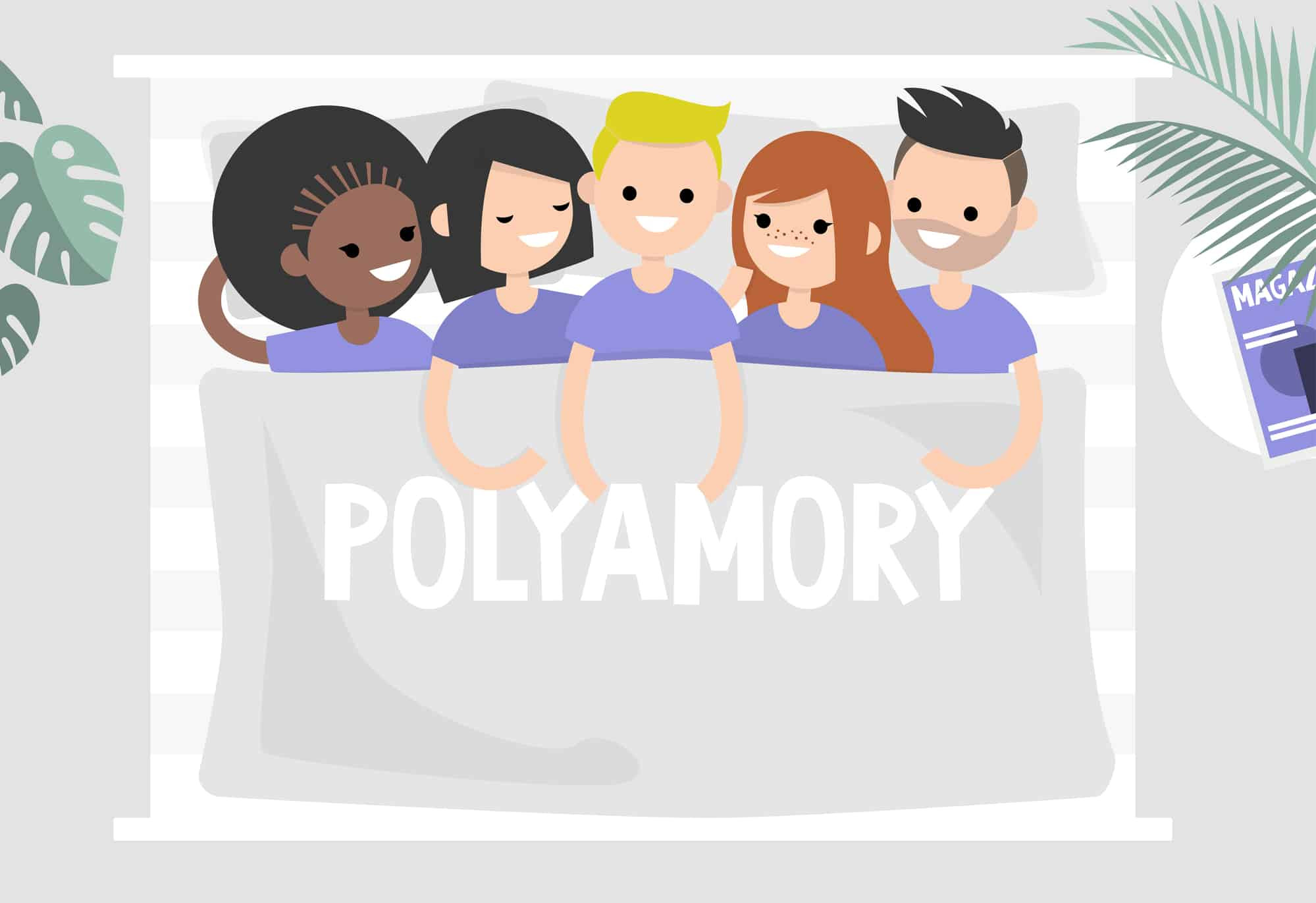WHAT IS POLYAMORY?
WHAT IS POLYAMORY?
- by Nirvana Bhandary
What is polyamory?
The breakdown of the word “polyamory” means multiple love. Polyamory is the practice of having conscious, ethical romantic relationships between more than two people. People hear the word “polyamory” and immediately confound it with “polygamy”. The most significant distinction between the two relationship structures is that polygamy originated in patriarchal societies where men could pick multiple wives, and the women had no say in the decision. However, polyamory is the conscious choice of mainly progressive Westerners who feel limited by a patriarchal monogamous model of relationships and seek to have relationships on their own terms. Polygamy is a transgressive practice that denies women agency in relationships whereas polyamory is a progressive model that can empower women to design relationships of their choosing. Polygamy flourishes because of the binding institution of marriage; polyamory shatters the conventional notion of marriage.
Why polyamory?
Many people find the idea of monogamy restrictive and unfulfilling and seek an alternative relationship model. Because of the way our society is structured and how heavily it relies on the institution of monogamous heterosexual marriage to function, any alternative relationship models are kept at a distance and stigmatised. However, polyamory is a valid, acceptable choice and way to live your life.
Polyamory is not just about sex; it is about loving more than one person in an honest and ethical manner. Polyamory is the very opposite of infidelity as it is based on radical transparency between everyone involved. Polyamorous relationships subvert the limiting ideas of jealousy, loyalty and the sacredness of the bond between two people.
Ironically, some people seem to be more comfortable with secret infidelity rather than openly discussed non-monogamy as societal conditioning has taught us that polyamory is odd, but cheating is normalised. Polyamory forces us to confront our subconscious emotions such as jealousy and challenges social frameworks of relationships such as ownership. A man who is able to loosen his grip on owning his woman is evolving from his caveman instincts, unlearning centuries of patriarchal conditioning.
To be capable of having multiple relationships, you need to have finely developed emotional intelligence so that mutual understanding and respect can be fostered between everyone involved. Polyamory is not for the emotionally repressed and faint-hearted, who flee at the first tugs of jealousy and insecurity.
Jealousy is not an end-all emotion within a relationship. We do not treat any other emotions as end-alls, so why do we view jealousy within a relationship as damnation that blows love into smithereens and can never be salvaged? If you examine jealousy as any other negative emotion such as sadness, angry and loneliness, you can find techniques to overcome it.
The reality about polyamory is that it is very individualistic and thus hard to summarise as a concept and practice. Each couple determines their own boundaries, ways of communicating, approaching things, and conflict resolution mechanisms. Together they make decisions about how many people they want to date, how they will date them, who to have sex with, how often etc. Similar to monogamy, how a relationship looks like is unique depending on the couple.
A personal testimony of exploring polyamory
“My exploration into polyamory challenged everything I had been taught and role-modelled over two decades about what a valid romantic relationship looked like. Growing up I only saw heterosexual monogamous couples. My parents, my grandparents and all my relatives had had arranged marriages. I never even saw affection within marriages, much less alternative relationship dynamics. I never saw a husband kiss a wife, a wife tells a husband she loved him, anyone holding hands or displaying even a hint of affection or intimacy. To my expanding brain, marriage seemed to be something we all had to do – like brushing our teeth twice a day, for some ‘greater purpose’ that wasn’t quite clear at the time.
After my first polyamorous encounter, I felt an overwhelming sense of guilt the next day, a shattering of everything I had once believed and then finally anger at the rigid social conditioning that we all fall prey to so ignorantly. A conservative upbringing and exposure to widespread monogamy had hammered into me ideals of the “sanctity” of marriage for twenty-three years. Marriage is the most sacred bond between two people and any sort of deviation from that, which threatens it, is abhorrent and immoral.
My questioning led me to frustration at the limited narratives of love and relationships that exist in mainstream society. I felt angry at every Hollywood movie that idealized monogamous heterosexual marriage as the peak experience every woman should aspire for, I felt angry at my parents and other adults that I saw growing up who modelled relationships that fit society’s formula but were deeply unsatisfied. Mainly I felt angry at the stigma and guilt that is placed on individuals who choose not to be monogamous; the accusations of being selfish and sinful.
These inquiries were cathartic. It grounded me in my truth: of opening myself to polyamory more wholly, in the face of its criticisms and misunderstandings. I knew I wanted to move forward, I saw the ability of polyamory to bring me immense pleasure and self-evolvement.”
-Anonymous
Further reading-
https://psychcentral.com/health/polyamorous-relationship
https://www.psychologytoday.com/us/basics/polyamory
https://www.buzzfeed.com/hannahdobro/polyamorous-people-discuss-relationships
https://www.foriawellness.com/blogs/learn/polyamory-for-beginners
